I'm an American who's lived in Tokyo for 12 years, and there are 6 mistakes I often see tourists make when they visit the city
Justin Miller, a New York native, has lived in Japan for 15 years.
Miller's seen tourists talk loudly on the phone in public and bring their shoes into people's homes.
Miller says the tipping culture in Tokyo is complicated — but tourists shouldn't force workers to accept tips.
This as-told-to story is based on a conversation with Justin Miller, a Tokyo-based DJ and English teacher. He shares what he's learned about Tokyo after living in Japan for 15 years. It's been edited for length and clarity.
Tokyo, the capital of Japan, is one of the biggest cities in the world, with over 37 million people living in the metropolitan area. Tokyo is also one of the most popular travel destinations in Asia. In 2019, over 15 million people visited the city. Famous for its expansive urban landscape, it's also filled with natural havens like Ueno Park and the Imperial Palace Gardens.
I'm originally from Albany, in upstate New York, but I have lived in Japan for 15 years. I moved to Nagoya in 2008 and then relocated to Tokyo. I've called Tokyo my home for the past 12 years.
The city is so vast, and I feel like I've barely scratched the surface after living here for over a decade. My favorite thing about living in Tokyo is constantly exploring and discovering new things — from lesser-known neighborhoods to the countless immaculate gardens and temples. The nightlife is spectacular, too. I ran a Japanese oldies DJ event in Shibuya for 10 years — just one example of the many exciting happenings people can check out in Tokyo.
After living in Tokyo for over a decade, I've seen tourists make the same mistakes while traveling about the city. Here are six of the most common mistakes I've spotted and how they can be avoided.
1. Be aware of the social norms when dining out — they can be wildly different from the US.
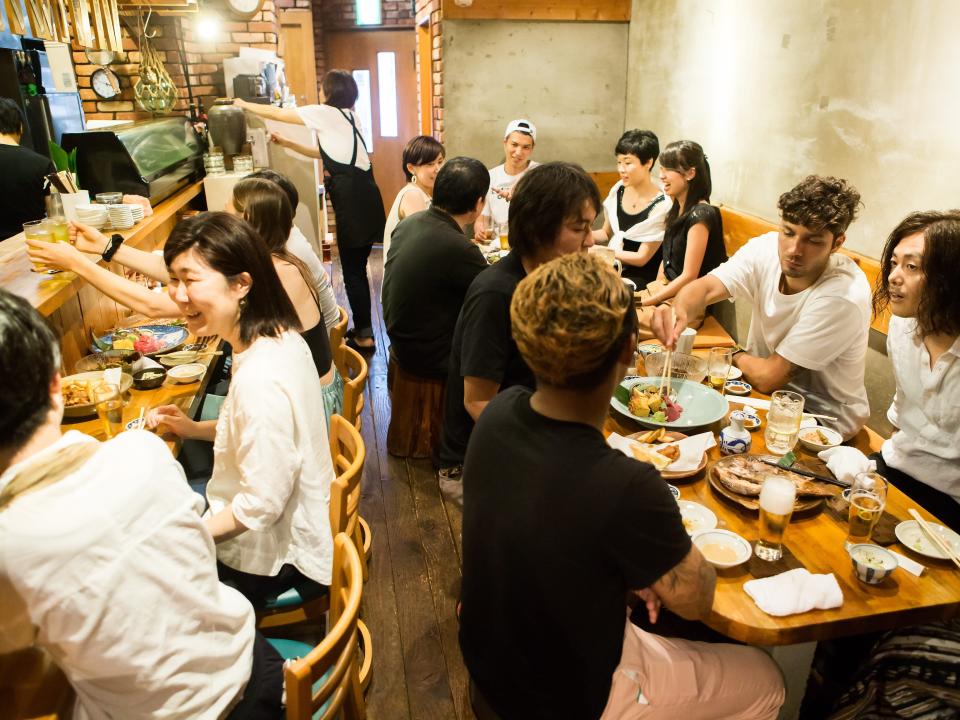
Tipping is complicated in Tokyo — the practice isn't universal here compared with the US. Over the years, I've seen people react differently when it comes to tipping. Some people seemed insulted when I tried to offer them gratuity, others were happy to accept a tip. While it's fine to offer a tip to a server, refrain from insisting that they accept the money as that can be perceived as rude.
When dining out in restaurants in Tokyo, don't wait for a server to come and take your order. Instead, call out to the servers in a loud voice and say "sumimasen," or "excuse me" in Japanese. Some restaurants have a button for diners to ring a bell so they can get a staff member's attention.
While politeness is a big part of Japanese culture, some tourists overdo it and say thank you to a degree that makes people uncomfortable. So avoid being overly thankful to restaurant workers as many of them see it as only doing their job.
2. Never enter a home or traditional restaurant with your shoes on.
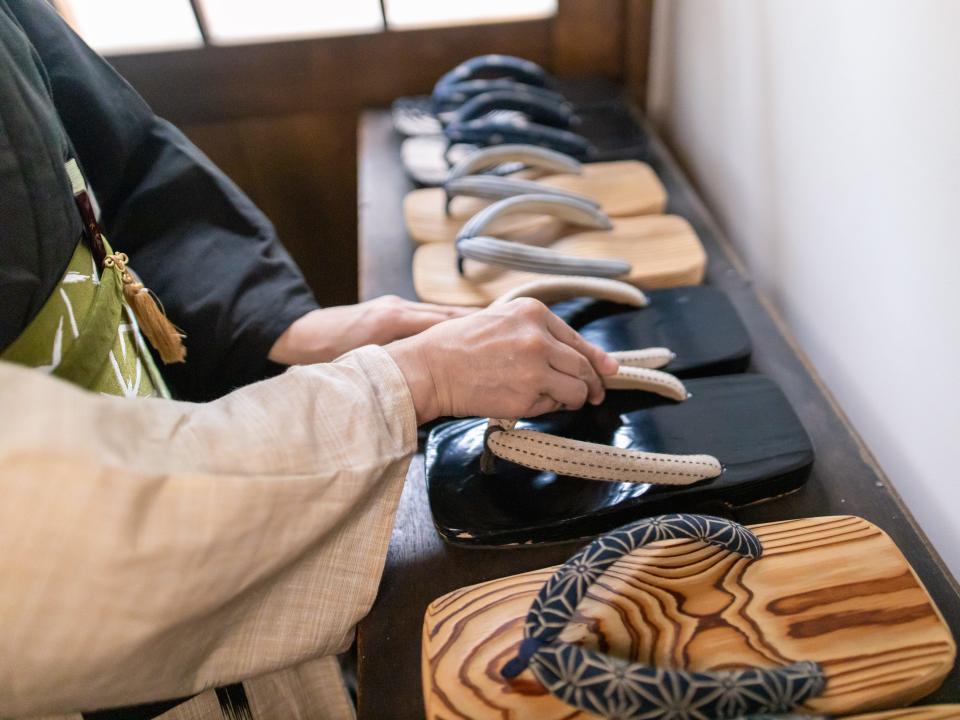
Like in many countries in Asia, it's customary to take your shoes off in Japan when entering someone's house, certain types of restaurants, or a ryokan — a traditional Japanese hotel.
Many Japanese people believe in keeping the inside of a building clean and will avoid placing things that touch the ground outside — like shoes — on the floor. There are often cabinets to store your shoes near the entrance.
In many houses and traditional restaurants, people eat sitting down on tatami, or straw mats. For this reason, bags also rarely touch the ground indoors — most cafes and restaurants will give you a little basket to keep your bags in.
3. Refrain from speaking loudly or confronting others, as people see these things as disrespectful.
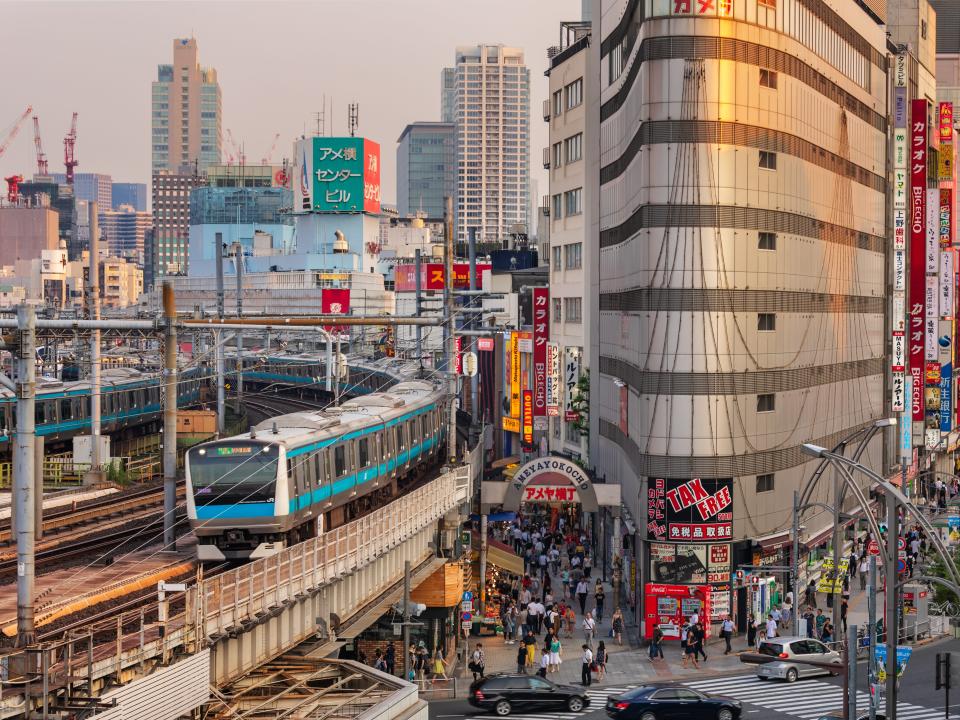
In general, speaking in a loud voice on the train or in public spaces is frowned upon — and the same also goes for speaking on the phone, especially on public transport. So wait until you've gotten off the train to take a call on your phone to avoid making other commuters uncomfortable.
In Japan, confrontation is avoided in most circumstances. It's better to communicate with others in a passive way when speaking about your concerns. In Tokyo, tourists should also avoid speaking rudely in English as many people in Tokyo understand the language.
4. Avoid touristy areas when it comes to skyline views and nightlife.
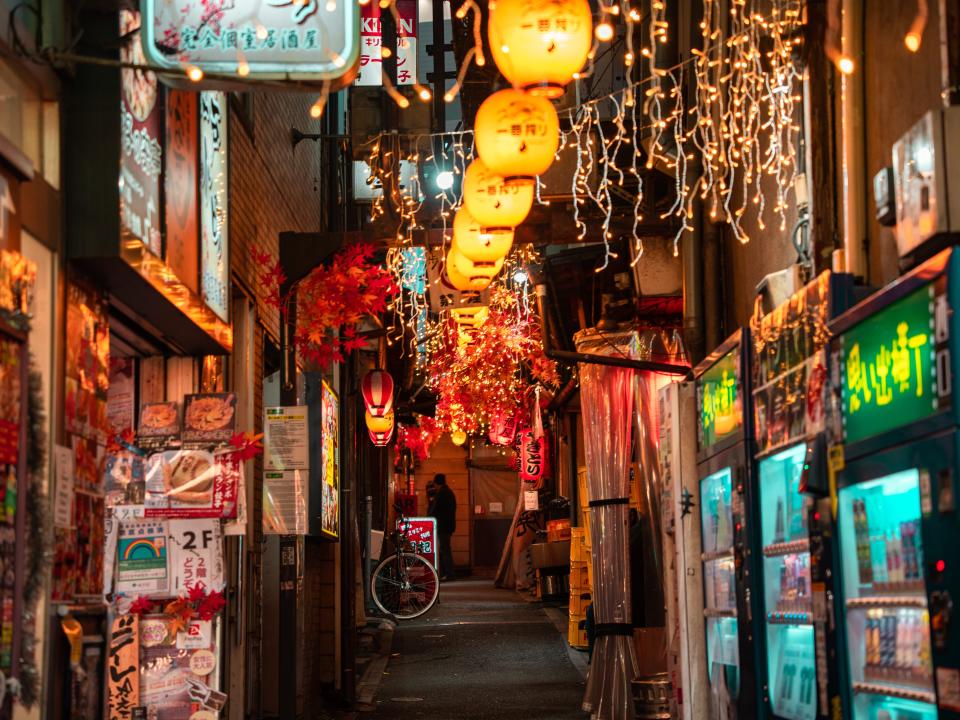
Tokyo has one of the most vibrant nightlife scenes in the world, with some 30,000 bars. But not all bars are created equal — some have become overly touristy and might not be worth visiting. For example, Golden Gai in Shinjuku was once a fabulous street of small bars but now, too many tourists have flocked there. You can find cool small bars elsewhere, like Rhythm Cafe in Shibuya.
Another famous tourist attraction is Tokyo Skytree, an observatory with a view of the metropolitan area. But it's far from most things and can get pretty boring. You can get a nice view from the Mori Art Museum or the Shinjuku Metropolitan Building — and can explore the area afterward too.
5. Refrain from eating while walking, as it's considered rude.
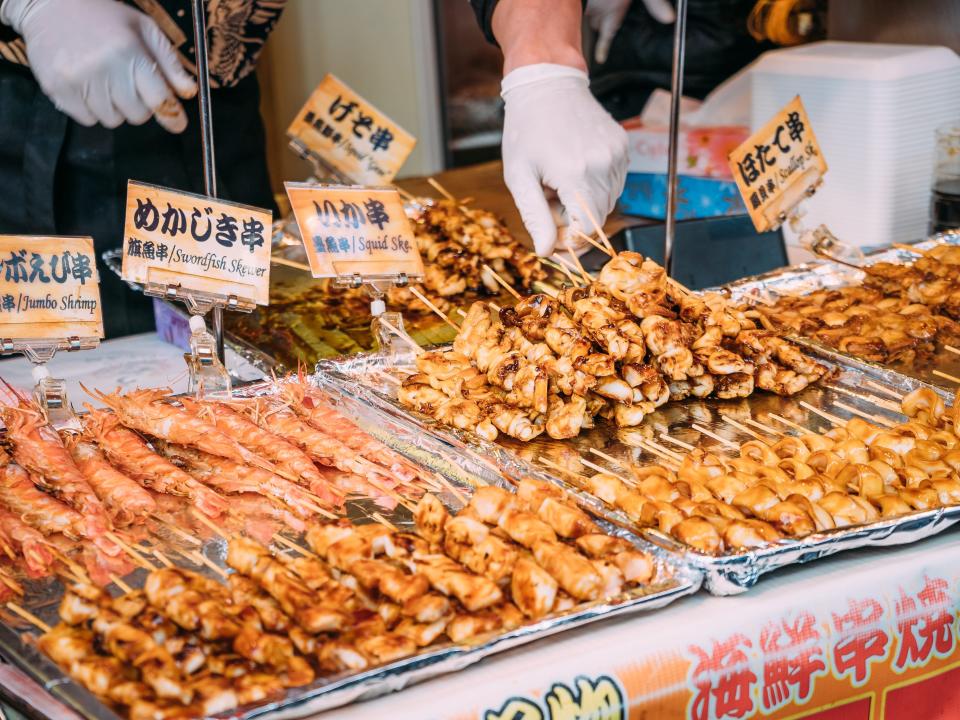
In Japan, people avoid eating while walking as it's seen as disrespectful. Until recently, walking and drinking coffee was also considered taboo, but now it's mostly seen as acceptable and many people take part.
At restaurants, food portions are smaller and people only order what they can eat — so tourists should follow this norm when dining out in Tokyo too. Also, most restaurants don't use take-out boxes, as the law requires them to have a separate license to do so.
6. Veganism isn't common in Tokyo, so be careful when ordering vegan food at restaurants.
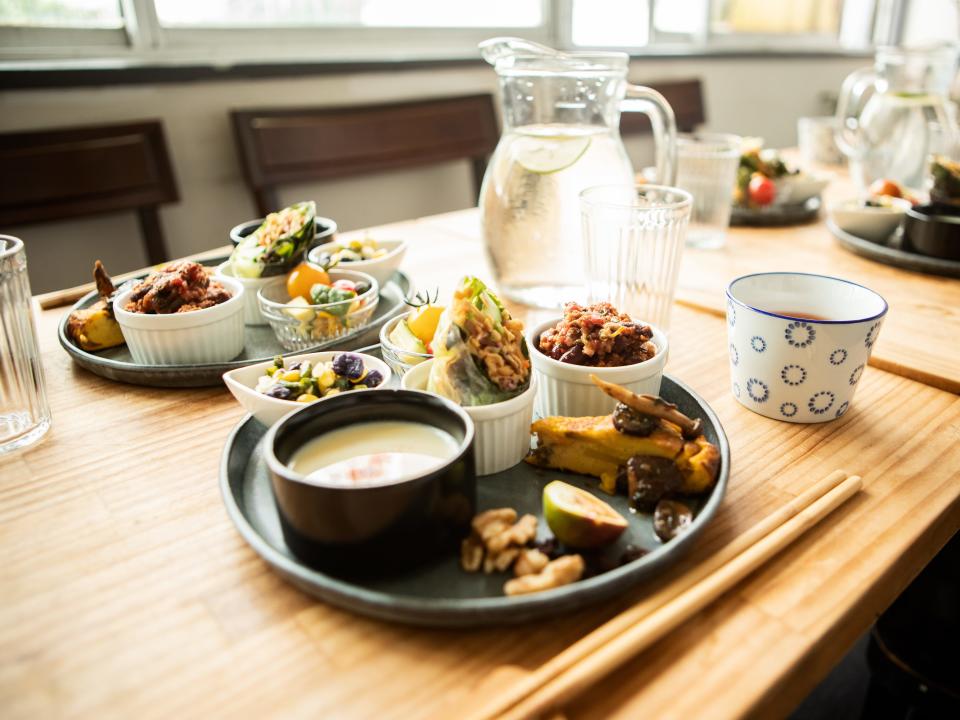
In Tokyo, many people don't subscribe to vegetarianism or veganism, unlike in the West. Perhaps as a result, vegan restaurants aren't all that common — in 2020, there were only 1,000 vegan restaurants in Japan. This means that vegan restaurants and food options are few and far between in Tokyo compared to major cities in the US.
So for tourists who are looking for vegan food, make sure to be specific about what you don't eat and be particular about what not to include in your dish. Some restaurants are more than happy to heed your requests.
Read the original article on Insider

